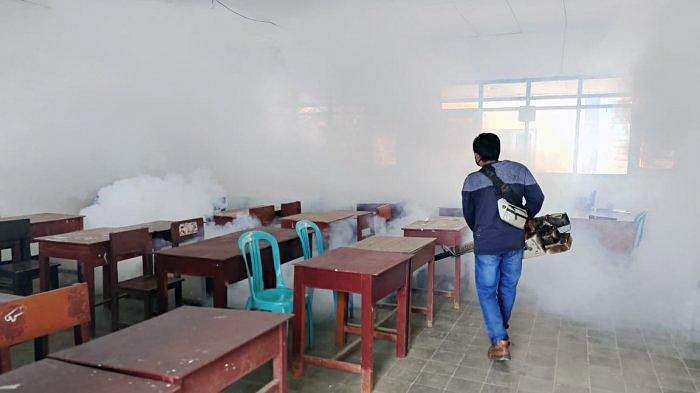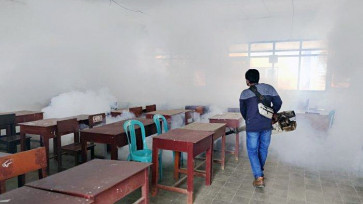Popular Reads
Top Results
Can't find what you're looking for?
View all search resultsPopular Reads
Top Results
Can't find what you're looking for?
View all search resultsWhat Bhutan, Timor Leste can teach us about eliminating malaria
While many regions have seen improvements, Papua remains a real concern. The malaria burden there has increased by 13 percent since 2019.
Change text size
Gift Premium Articles
to Anyone
M
ore progress has been made in Indonesia’s fight against malaria, with four provinces declaring the successful elimination of this acute febrile illness. Based on endemicity levels recorded in 2021, Bali, Banten, East Java and Jakarta can now call themselves malaria-free.
This achievement was announced during a virtual press conference on April 22 to celebrate World Malaria Day.
In eastern Indonesia, East Nusa Tenggara (NTT) and North Maluku have been pioneers in malaria containment. In 2020, the Health Ministry granted malaria elimination certificates to Kupang, Manggarai and East Manggarai in NTT and the Tidore Islands in North Maluku. In 2021, more cities and regencies in these two provinces successfully eliminated malaria, followed by those in other eastern Indonesian provinces.
Musi Banyuasin regency in South Sumatra has also been crossed off the list of endemic malaria areas. Health Minister Budi Gunadi Sadikin handed the regency administration its malaria elimination certificate during a ceremony to mark World Malaria Day in Mandalika, Central Lombok, West Nusa Tenggara, on May 31.
Ambon, too, received a malaria elimination certificate in 2022.
Both Musi Banyuasin and Ambon were awarded the certificates because of a constant decline in infections. Certification of malaria elimination in an area requires evidence that there has been no local transmission or indigenous cases for three years and that the area has a positivity rate of below 5 percent and an annual parasite incidence (API) level of less than one per 1,000 people, according to the Health Ministry.
This year’s achievements have added to Indonesia’s long list of malaria success stories. The country cut the malaria burden nearly in half from 2010 to 2020, and currently, 347, or 68 percent, of the country’s 514 cities and regencies are malaria-free.



















